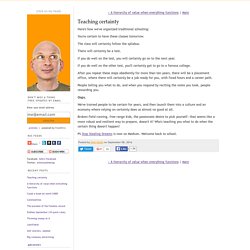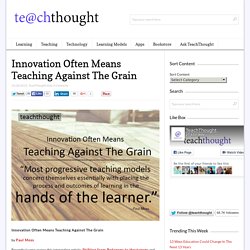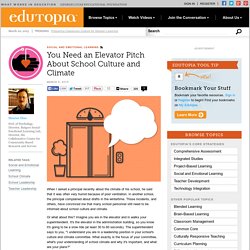

Teen Makes 'Sit With Us' App That Helps Students Find Lunch Buddies. Teaching certainty. Here's how we've organized traditional schooling: You're certain to have these classes tomorrow.

The class will certainly follow the syllabus. There will certainly be a test. If you do well on the test, you will certainly go on to the next year. Your job vs. your project. Outlook Web App. Brad Wise - The WHY of Storytelling. TEDxNYED - Alan November - 03/05/2011. Grit: The Key to Your Success at FLVS. Group Games for Fun eBook 2016. Innovation Often Means Teaching Against The Grain. Innovation Often Means Teaching Against The Grain by Paul Moss Recently I came across this interesting article: Shifting from Pedagogy to Heutagogy and whilst espousing all contained within, it got me thinking about the inescapable perils faced when adopting this and other progressive forms of teaching.

Going against the grain can be a lonely experience at times, and whilst sound theory and instinct act as a nice warm blanket against the cold, one could well do with a practical survival guide to assist in implementing new practice. Teachers need to be prepared for the reality of what lies ahead of them to assist in the reshaping of their classrooms, and to ultimately strengthen their resolve in maintaining the chosen epistemology.
How Dissecting a Pencil Can Ignite Curiosity and Wonderment. Can the act of making or designing something help kids feel like they have agency over the objects and systems in their lives?

That’s the main question a group of researchers at Project Zero, a research group out of the Harvard Graduate School of Education, are tackling alongside classroom-based teachers in Oakland, California. In an evolving process, researchers are testing out activities they’ve designed to help students to look more closely, explain more deeply and take on opportunities to change things they see around them. The program is called Agency By Design and it relies on nimble, malleable activities Project Zero researchers call “thinking routines” that slow down the pace of the classroom to make space for deep observation and wonderment. That happens by talking and discussing objects or systems in the everyday world to help kids develop words to describe their thinking. It’s more a framework than a specific step-by-step process. You’re Never Going to Be Fully Ready. How to Host a TEDx Event at Your School. It’s almost here!

TEDxPennsburgED is finally happening in one week, and we’ll be broadcasting it live to the world (at Upper Perkiomen High School) on May 7th from 12:30-4:30pm (EST). The idea and planning began in the summer for this official TEDx event, but as more and more people are asking, “How did you guys get a TEDx event at Upper Perk?” , I wanted to break down our process into five steps (even though it has felt like 500 steps!). Step 1: Event Type and Initial Brainstorm. You Need an Elevator Pitch About School Culture and Climate. When I asked a principal recently about the climate of his school, he said that it was often very humid because of poor ventilation.

In another school, the principal complained about drafts in the wintertime. Those incidents, and others, have convinced me that many school personnel still need to be informed about school culture and climate. Or what about this? TED TALKS - Public Speaking - Google Slides. Making a Movenote Presentation. A Day Made Of Glass 1 & 2. Caine's Arcade. Foundation – Global Cardboard Challenge. Dipsticks: Efficient Ways to Check for Understanding. What strategy can double student learning gains? According to 250 empirical studies, the answer is formative assessment, defined by Bill Younglove as "the frequent, interactive checking of student progress and understanding in order to identify learning needs and adjust teaching appropriately. " Unlike summative assessment, which evaluates student learning according to a benchmark, formative assessment monitors student understanding so that kids are always aware of their academic strengths and learning gaps.
Meanwhile, teachers can improve the effectiveness of their instruction, re-teaching if necessary. "When the cook tastes the soup," writes Robert E. Stake, "that's formative; when the guests taste the soup, that's summative. " How To Task.